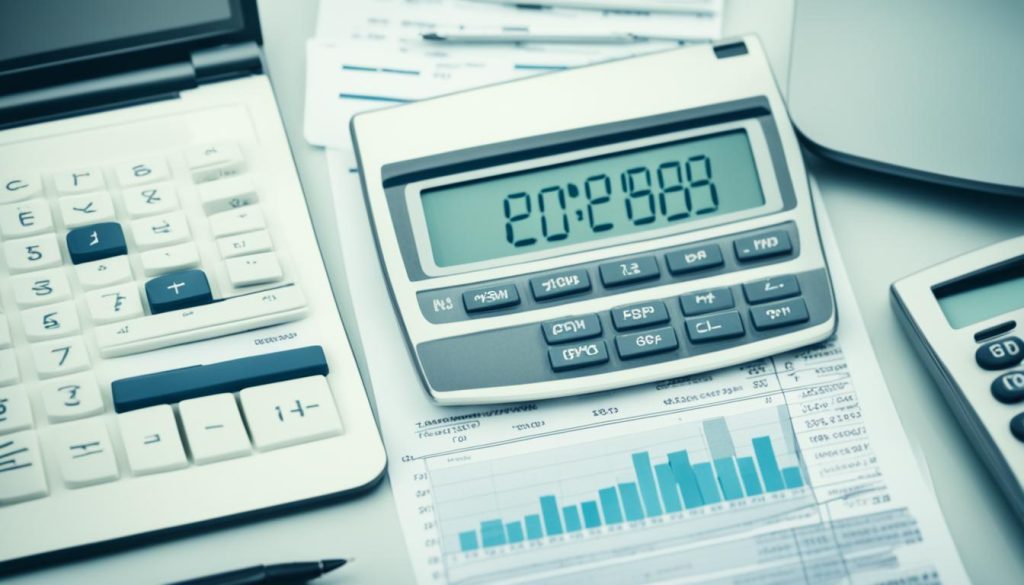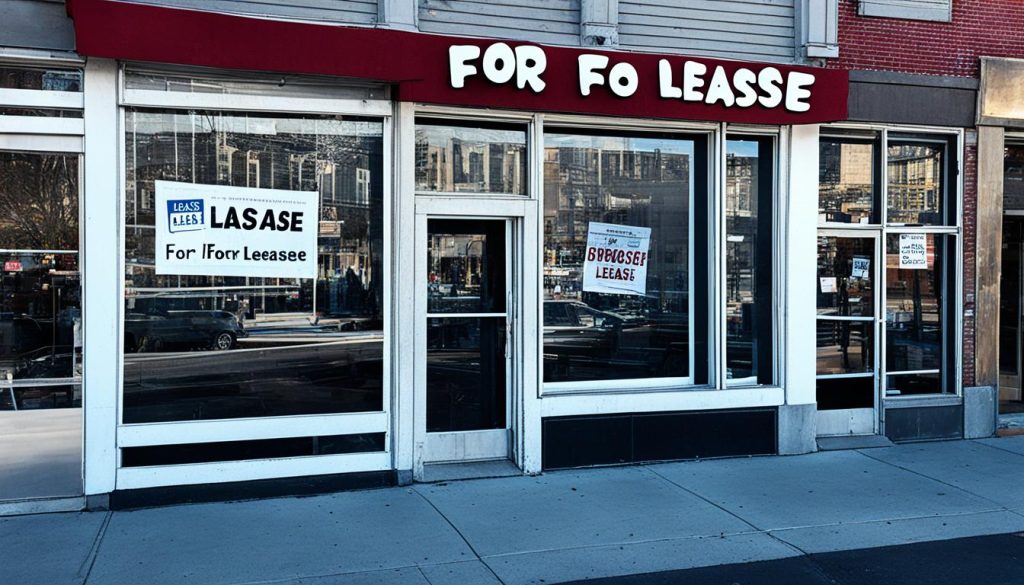Business rates are a crucial aspect of operating non-domestic properties in the United Kingdom. Whether you own a shop, office, pub, warehouse, factory, or holiday rental home, understanding the ins and outs of business rates is essential.
Business rates are taxes imposed on most non-domestic properties used for non-domestic purposes. If a building or a part of a building is used for non-domestic activities, business rates must be paid to the local council. These rates contribute to funding local services and infrastructure.
However, relief schemes are available to provide assistance to businesses burdened by these rates. It’s important to be aware of these relief schemes and determine if your property is eligible.
Furthermore, some properties are exempt from business rates. Farm buildings and places used for the welfare of disabled individuals are among the exempt properties. It’s essential to understand if your property falls under any exemptions to ensure accurate and fair business rates assessment.
In this comprehensive guide, we will explore the calculation of business rates, available relief schemes, and what to do if you believe your business rates are incorrect. Stay tuned to gain a thorough understanding of the intricate world of business rates and optimize your finances accordingly.
What Are Business Rates?
Business rates are a form of tax imposed on non-domestic properties in the UK, including commercial premises like shops, offices, warehouses, and pubs. These rates are a significant source of income for local councils and help fund local services.
The amount of business rates payable is based on the rateable value of a property, which is set by the Valuation Office Agency (VOA) and represents the property’s estimated open market rental value on a particular date. The rates are calculated using a multiplier set by the government, known as the Uniform Business Rate (UBR), which is applied to the rateable value.
Business rates can be a substantial cost for businesses, and there are various reliefs and exemptions available to help reduce the burden for eligible businesses, such as small businesses and those in certain sectors. It’s important for businesses to understand their business rates liability and take advantage of any available reliefs to manage their costs effectively.
How Are Business Rates Calculated?
Business rates play a crucial role in the UK, and understanding how they are calculated is essential for businesses. The calculation is based on the rateable value of a property, determined by the Valuation Office Agency (VOA). The rateable value represents the estimated annual rental value of the property as of April 2021.
To calculate the business rates, the rateable value is multiplied by a multiplier, which determines the amount to be paid per pound of rateable value. The multiplier differs based on whether the rateable value is £51,000 or over or less than £51,000. This multiplier is known as the small business multiplier for properties under £15,000 rateable value.
For example, if the rateable value of a property is £50,000, and the multiplier for that value range is 0.51, the business rates will be calculated as follows:
| Rateable Value | Multiplier | Business Rates Calculation |
|---|---|---|
| £50,000 | 0.51 | £50,000 x 0.51 = £25,500 |
It’s important to note that for properties with a rateable value under £15,000, small business rate relief is available. This relief scheme aims to reduce the burden of business rates on small businesses by providing a discounted or even fully exempt rate. The specific details and eligibility criteria for small business rate relief can be verified with the local council or relevant government authorities.
By understanding the calculation method and potential relief schemes, businesses can better plan and manage their business rates, optimizing their finances and ensuring compliance with the regulations.

Relief Schemes for Business Rates
Reducing the burden of business rates is a priority for many businesses. Thankfully, there are several relief schemes available to provide assistance. Whether your business falls under small business rate relief, rural rate relief, charitable rate relief, transitional relief, or retail discount, there are options to help alleviate the financial strain. Let’s take a closer look at each relief scheme:
1. Small Business Rate Relief
Small business rate relief is designed to support small businesses with a rateable value of less than £15,000. This relief scheme offers a reduced rate or, in some cases, a complete exemption from paying business rates. Eligible businesses could save a significant amount on their rates, freeing up funds for other essential expenses.
2. Rural Rate Relief
If your business operates in a rural area with a population of 3,000 or less, you may qualify for rural rate relief. This relief scheme takes into account certain rateable value criteria and offers financial support to businesses in rural communities. By reducing the business rates burden, rural rate relief helps sustain local businesses and contributes to the vitality of rural economies.
3. Charitable Rate Relief
Charitable rate relief is aimed at supporting local charities and community amateur sports clubs. Under this relief scheme, eligible organizations can benefit from an 80% reduction in their business rates. This enables charities to allocate a greater portion of their funds towards their charitable activities, benefiting the communities they serve.
4. Transitional Relief
Transitional relief is designed to ease the impact of business rate changes that occur following a revaluation. When a property’s rateable value changes significantly due to a revaluation, transitional relief limits the increase in business rates over a certain period. This gives businesses time to adjust to the new rates and minimizes any sudden financial shocks.
5. Retail Discount
Retail discount is a relief scheme specifically tailored for eligible retail properties. It offers a one-third reduction in business rates for properties with a rateable value under £51,000. This relief aims to support the retail sector by easing the financial burden of business rates and encouraging growth and investment in the retail industry.

These relief schemes provide much-needed assistance to businesses facing the challenge of high business rates. By taking advantage of the appropriate relief scheme, businesses can significantly reduce their rates and allocate those saved funds towards growth and development.
What to Do If Your Business Rates Are Wrong
If you believe your business rates are incorrect, it is important to take action to rectify the situation. Here are the steps you can follow:
- Contact the Valuation Office Agency (VOA): The VOA is responsible for determining the rateable value of properties and assessing business rates. You can get in touch with them to address any concerns or errors in your business rates valuation.
- Use your business rates valuation account: If you have an online account with the VOA, you can use it to request changes to your property details or dispute the rateable value. Take advantage of this convenient feature to streamline the process.
- Provide relevant information: The VOA may ask for additional details or rental information to assess the rateable value accurately. It is crucial to respond promptly and provide the necessary information to facilitate an accurate evaluation.
By reaching out to the Valuation Office Agency and actively engaging in the process, you can address any incorrect rateable value and ensure that your business rates are calculated properly. Failure to take action could result in potential penalties or backdated increases in your rates.
Note: It is important to consult with a professional advisor or accountant to guide you through the process and ensure that you navigate the complexities of business rates valuation effectively.
Changes in Business Premises and Reporting to VOA
When it comes to running a successful business, changes in premises are inevitable. Whether you’re relocating to a new property or subletting part of your current space, it’s crucial to report these changes to the Valuation Office Agency (VOA).
By keeping the VOA informed about any developments in your business premises, you can ensure that your business rates are accurately calculated and avoid any potential issues. Failure to report changes in a timely manner can result in backdated increases in your business rates, which can lead to unnecessary financial strain.
Notifying the VOA about changes in your business premises is a simple process that can be done online or by contacting their helpline. Provide the necessary details and documentation, such as lease agreements or occupancy certificates, to support your report. The VOA will then update their records accordingly, ensuring that your business rates are calculated correctly.
By reporting changes in your business premises promptly, you can maintain compliance with the regulations and prevent any unexpected increases in your business rates.
Key Steps to Reporting Changes:
- Access the Valuation Office Agency website or contact their helpline.
- Provide accurate information about the changes in your business premises, including the date of the change and any relevant documentation.
- Update the VOA about any further developments or changes in the future to ensure your business rates are always up to date.
Reporting changes in business premises is an essential part of managing your business rates effectively. By staying proactive and keeping the VOA informed, you can ensure that your rates accurately reflect your current situation, avoiding any unnecessary financial burdens.
Now, let’s take a look at a summarized table that illustrates the importance of reporting changes to the VOA:
| Consequences of Not Reporting Changes to the VOA | Potential Issues |
|---|---|
| Backdated increases in business rates | Financial strain due to higher rates |
| Non-compliance with regulations | Potential penalties and fines |
| Inaccurate business rates calculations | Payment discrepancies and accounting challenges |
Remember, it’s always better to report changes in your business premises to the VOA promptly to avoid any potential issues. Keeping your business rates up to date ensures accurate financial planning and compliance with the regulations.

Revaluation of Business Properties and Business Rates Relief
Business properties undergo revaluation every three years by the Valuation Office Agency (VOA) to reflect changes in the property market. This revaluation process can lead to adjustments in the rateable value, subsequently impacting the business rates.
To accurately estimate your business rates, it is essential to check the current valuation of your property. The VOA provides valuations based on their assessment of the property’s rental value as of April 2021. Keeping track of any changes to the rateable value is essential for budgeting and financial planning.
If you believe that your business rates have been set at an unfair level, you have the right to appeal to the Valuation Tribunal Service. The appeal process allows you to present evidence to support your case and potentially have your business rates reassessed.
Aside from the relief schemes mentioned earlier, there are additional reliefs available for businesses. For instance, certain enterprise zones offer exemptions or reductions in business rates to encourage economic growth and development.
Consulting with an accountant or financial adviser is highly recommended to explore all available options and navigate the complexities of business rates relief effectively. They can provide expert guidance and ensure that you make informed decisions regarding your business rates.

Key Takeaways:
- Revaluation of business properties is carried out every three years by the Valuation Office Agency (VOA) to account for changes in the property market.
- Checking the current valuation of your property is crucial in accurately estimating your business rates.
- If you believe your business rates are unfair, you can appeal to the Valuation Tribunal Service.
- Aside from the relief schemes mentioned earlier, there are other reliefs available, such as those offered in enterprise zones.
- Consulting with an accountant or financial adviser provides valuable support in navigating business rates relief options.
Conclusion
Understanding business rates is crucial for businesses operating in the UK. These rates, calculated based on the rateable value of a property, are a key financial consideration. Businesses can benefit from various relief schemes aimed at reducing their business rates burden.
It is essential for business owners to familiarize themselves with the calculation methods and take advantage of available relief schemes. This ensures that they optimize their finances and comply with the necessary regulations.
Reporting changes in business premises and staying updated on revaluations are also vital aspects of managing business rates effectively. By constantly monitoring and updating their property details with the Valuation Office Agency, businesses can avoid potential penalties and backdated rate increases.
In conclusion, this guide to business rates provides an overview of how they are calculated and the relief schemes available. By understanding and implementing the key concepts discussed, businesses can navigate the complexities of business rates in the UK and make informed financial decisions.
FAQs
What should I do if I believe my business rates are incorrect?
You can contact the Valuation Office Agency and use your business rates valuation account to request changes to your property details or dispute the rateable value. It is important to respond promptly and provide necessary information to avoid potential penalties or backdated increases in your rates.
What should I do if there are changes in my business premises?
If there are any changes in your business premises, such as moving to a new property or subletting part of your current property, you need to report these changes to the Valuation Office Agency. Failure to report changes on time may result in backdated increases in your business rates.
How often are business properties revalued?
Business properties are typically revalued every three years by the Valuation Office Agency to account for changes in the property market. Revaluation can result in changes to the rateable value and, consequently, the business rates.
What can I do if I believe my business rates are set at an unfair level?
If you believe your business rates are set at an unfair level, you can appeal to the Valuation Tribunal Service. Additionally, there are other reliefs available for businesses, such as exemptions for enterprise zones. It is advisable to consult an accountant or financial adviser to explore all available options.





